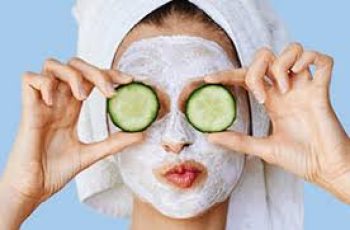
10 Powerful Reasons to Use a Sheet Mask
Looking for an easy way to boost your skincare routine? Sheet masks are one of the simplest, yet most effective, tools you can use to hydrate, brighten, and rejuvenate your skin.
Popularized by Korean Beauty (K-Beauty), these serum-soaked fabric sheets have become a skincare staple across the globe — and for good reason.
They’re packed with powerful ingredients, offer targeted benefits, and are as easy to use as peeling and placing. But if you’re wondering why you should try one, here are 10 compelling reasons.
1. They Deliver a High Dose of Serum
A sheet mask is essentially a carrier for serum. Each mask is soaked in a concentrated blend of active ingredients that penetrate deep into the skin.
Serums are more potent than regular creams or moisturizers. They’re designed to target specific concerns — like aging, dullness, or dryness.
The liquid base allows your skin to absorb more nutrients, especially when sealed in by the sheet. It’s like giving your skin a drink of pure skincare.
2. They’re Incredibly Convenient
Forget about messy clay masks or confusing multi-step routines. Sheet masks come pre-cut to fit your face, with slits around the eyes, nose, and mouth.
They’re single-use, hygienic, and mess-free. After you’re done, simply toss the mask — no need to rinse your face or clean up a mess.
They take under a minute to apply and stay in place while you relax. It’s an effortless way to give your skin some TLC, even on a busy day.
3. They Deeply Hydrate the Skin
If you’re dealing with dry or flaky skin, a hydrating sheet mask can be a game-changer. The sheet seals in the moisture, helping ingredients absorb better.
Many masks contain hyaluronic acid — a hero hydrator that attracts up to 1,000 times its weight in water. It leaves your skin plump and supple.
The mask acts like a cocoon, keeping hydration locked in and evaporation out. After just 20 minutes, your skin feels noticeably more nourished and soft.
4. You Can Choose One Tailored to Your Skin
Not all sheet masks are created equal — and that’s a good thing! With so many options, you can find a mask that fits your exact skin concern.
Need an anti-aging boost? Try a collagen-infused sheet mask. Battling dullness? Go for vitamin C. Have sensitive skin? Pick something with aloe or chamomile.
Whether you want to calm irritation, tighten pores, fight acne, or brighten your complexion — there’s a sheet mask out there for you.
5. They Offer Instant Results
Most sheet masks are worn for about 15 to 20 minutes. And when you take one off, the results are often visible right away.
Skin looks dewier, more refreshed, and feels smoother. Because you don’t rinse it off, the active ingredients continue to work even after removal.
The quick turnaround makes sheet masks perfect before special events or when you need a fast pick-me-up for tired or stressed-out skin.
6. They’re Gentle Enough for Acne-Prone Skin
Acne sufferers often worry about trying new products. But certain sheet masks can actually help calm and reduce breakouts — when you pick the right one.
Avoid masks with harsh exfoliants or salicylic acid, which may irritate sensitive or inflamed skin. Instead, look for ingredients like aloe vera or green tea.
These natural, soothing ingredients can reduce redness and inflammation. They offer gentle hydration without clogging pores or triggering more acne.
7. They Help Brighten Dull, Tired Skin
Aging, lack of sleep, or exposure to pollution can make skin look dull and uneven. Sheet masks can help revive your glow and restore radiance.
Many masks include brightening agents like niacinamide, vitamin C, or licorice extract. These help fade dark spots and even out your skin tone.
Use them regularly and you’ll start noticing a fresher, more vibrant look. It’s a great way to combat the effects of stress and aging on your complexion.
8. They Offer a Moment of Relaxation
Let’s be honest — self-care is about more than just results. Putting on a sheet mask and lying back for 20 minutes is an easy way to unwind.
Pair it with your favorite playlist, a good book, or even just a few moments of silence. It becomes a mini spa session right in your own home.
Stress takes a toll on skin and health. Taking intentional breaks like this can calm your mind, improve mood, and help you feel recharged.
Just remember not to fall asleep with it on — most masks should be removed after 20 minutes to avoid drying out the skin.
9. They’re Perfect for Travel
Sheet masks are travel-friendly and spill-proof. They come in flat, single-use packets that slide easily into your suitcase or handbag.
Unlike bulky jars or liquids, they won’t leak or get confiscated at airport security. You can even use one on the plane to combat dry cabin air.
Whether you’re heading to the beach or a work trip, a sheet mask takes up zero space but delivers maximum skin benefits on the go.
10. They Supercharge Your Skincare Routine
Sometimes your skin just needs a little extra love. If your regular routine feels like it’s falling flat, a sheet mask can give your skin that much-needed boost.
They work well alongside your existing skincare products. You don’t need to switch routines — just use a mask once or twice a week for an added lift.
Because they’re gentle and non-invasive, they offer results without disrupting your skin barrier or causing irritation, making them a safe add-on.
Final Thoughts
Sheet masks may seem like a beauty trend, but they’re here to stay — and for good reason. They combine ease, efficacy, and indulgence in one simple step.
From hydration and anti-aging to brightening and stress relief, the benefits are as diverse as the masks themselves. And you don’t need a salon appointment.
If you haven’t added sheet masks to your routine yet, now’s the perfect time. Choose one that matches your skin goals and give your face the glow-up it deserves.
So, go ahead — peel, place, and pamper. Your skin will thank you.


